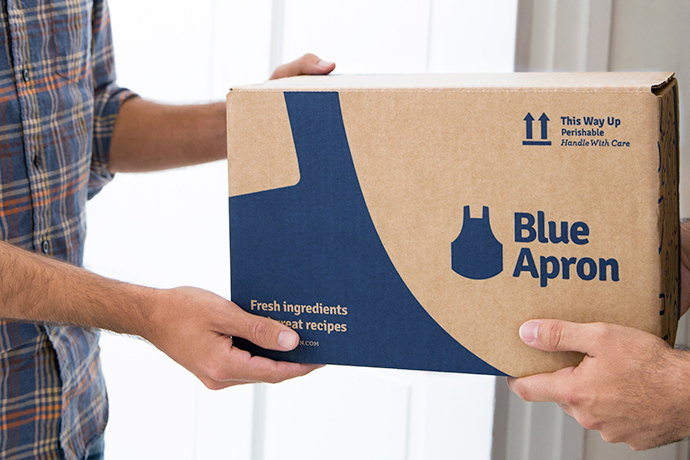
The meal startup has taken on an impressive challenge by attempting to change the way that Americans not only shop for food, but cook as well. But as Buzzfeed discovered, the challenges went far beyond sourcing the right ingredients or engineering a site capable of accepting massive order numbers. Really, it is in the heart of the operation — the fulfillment center — where your stomach might churn.
The folks preparing your meal kits — that is to say, those responsible for measuring out ingredients, putting them and your meal cards into boxes, and otherwise ensuring that your Blue Apron box gets to you ready to hit the stovetop — appear to be working in conditions that might be akin to a sweatshop. “Documents and interviews suggest that [Blue Apron] was unprepared to properly manage and care for those workers, and as a result has suffered a rash of health and safety violations,” Buzzfeed reports.
In a particularly alarming revelation, Buzzfeed found that in just over three years of operation in Blue Apron’s Richmond, California facility, “the Richmond Police Department has received calls from there twice because of weapons, three times for bomb threats, and seven times because of assault. Police captains have met twice with Blue Apron to discuss the frequency of calls to the police.”
Moreover, the report continues, “At least four arrests have been made due to violence on the premises, or threats of it. Employees have reported being punched in the face,choked, groped, pushed, pulled, and even bitten by each other on the job, according to police reports. Employees recalled bomb scares, brandished kitchen knives, and talk of guns.”
In addition to these working conditions, employees also spoke of having to work 12-hour days, where 2 a.m. phone calls were not altogether unexpected. And in a rush to fulfill demand, some employees were staffed on jobs that they simply were not trained to do — like operate heavy machinery.
Blue Apron, for its part, claims to have “learned from” various challenges, though it is unclear as of yet the extent to which the issues have improved.


